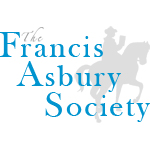Scripture reading: John 1:6–8
Post Tenebras Lux
Though he is dead, he still speaks. (Hebrews 11:4)
Born on July 10, 1509, in Noyon, France, John Calvin initially trained to be a lawyer. But as the Reformation began to spread across Europe, he gave up his secular ambitions and joined the Protestant cause. Persecution forced him to flee his homeland, and eventually he found himself in Geneva, Switzerland. From this base he emerged as perhaps the dominant voice (along with Luther) of the reform movement that was calling the Church back to her biblical roots. In Geneva, Calvin helped to raise up and equip an army of preachers and teachers armed only with the Word of God, and helped to send them all over Europe, spreading the Good News of salvation.
In the 1500s Europe was experiencing famine: not a famine for bread, but a famine for hearing the Word of the Lord (Amos 8:11). Calvin responded by giving the hungry masses what they needed most. Over one thousand persons came daily to listen as he expounded the sacred Scriptures from his Geneva pulpit. Writing commentaries, sermons, catechisms and liturgies, Calvin blanketed Europe with words about the Word. But it was his Institutes of the Christian Religion (1536) that had the greatest impact. Here Calvin sought to summarize the great doctrines of the Bible in a systematic manner. Will Durant called it “one of the ten books that shook the world.” The opening words set the tone for all that followed:
Our wisdom, in so far as it ought to be deemed true and solid wisdom, consists almost entirely of two parts: the knowledge of God and of ourselves . . . Man never attains to a true self-knowledge until he has previously contemplated the face of God . . .
Calvin’s labor enabled the world to rediscover what the Bible teaches about grace. From first to last our salvation is the result of grace, and grace alone. It cannot be earned. It can only be received as a gift through humble, childlike faith.
Even Calvin’s critics recognized his genius. Though he had serious reservations about Calvin’s doctrine of predestination, John Wesley once said that his own theology came within a “hair’s breadth” of Calvinism. Wesley, like so many others who lived after the Reformation, knew the debt he owed to this great soul. It is difficult to imagine what human history would have been like without the influence of John Calvin.
At his own request, Calvin was buried in an unmarked grave. Humbly he lived. Humbly he died. His only desire was to be a faithful servant of the Word. The motto of the Geneva Reformation aptly sums up this godly man’s life and influence: Post tenebras lux—“after the darkness, light.”
Happy birthday, John. Though I sometimes struggle with Calvinism and often with Calvinists (!), I, for one, am thankful to God for you! We owe you an enormous debt of gratitude. Your birth is worth celebrating.
A dog barks when his master is attacked. I
would be a coward if I saw that God’s truth
is attacked and yet would remain silent.
—John Calvin
point to ponder • I can only know myself when I know the One who created me.
prayer focus • A new generation of preachers who would proclaim the Word with boldness.
